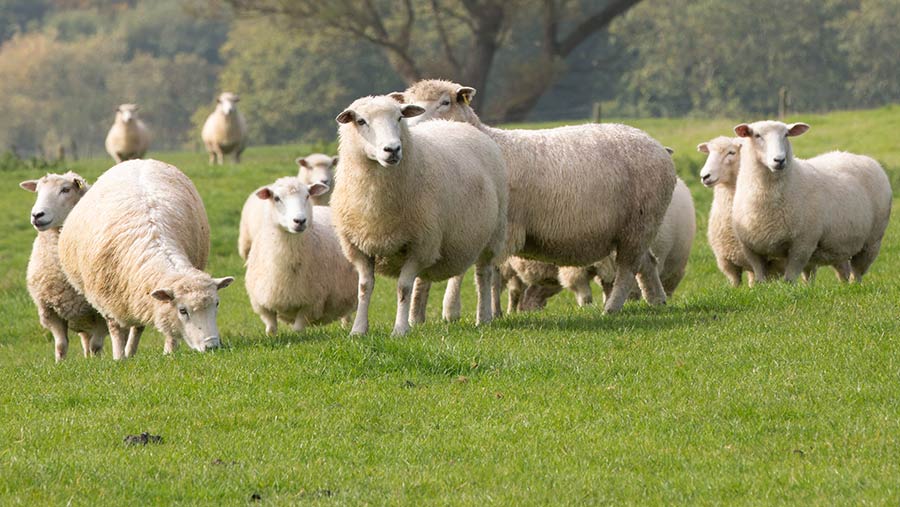Sharp rise in livestock rustling blamed on organised gangs
 © Tim Scrivener
© Tim Scrivener Animals worth £3m were stolen from UK farms last year, leaving farmers worried that organised gangs are targeting livestock.
Large-scale sheep thefts over the past two years have contributed to a 19.4% rise in value since 2017, making rustling the costliest crime for the UK’s farming sector after vehicle and machinery theft, according to NFU Mutual.
There have been regular reports of 50-100 sheep being taken in a single raid, with the meat from the stolen animals likely to be destined for the black market.
See also: What to do if you’re the victim of… sheep rustling
Rebecca Davidson, rural affairs specialist at NFU Mutual, said: “Rustlers are getting more skilled and organised, quickly loading sheep onto trailers and lorries late at night.
“We are concerned that gangs are now using working sheepdogs, which have also been stolen, to get the job done.
“As well as causing untold suffering to sheep, which may be in-lamb when they are stolen, rustling is causing high levels of anxiety for farmers who have built up their flocks over many years.”
One of the most alarming trends in recent years has been the illegal butchery of animals in the field. As well as the financial loss, these crimes are disturbing for farmers who find the remains of their slaughtered animals.
Prevent rustling
To deter livestock thieves, NFU Mutual advises farmers to ensure stock is clearly marked and records are up to date.
The insurer also says farmers should graze animals in fields away from roads, where possible, and consider a marking system such as TecTracer, which puts thousands of coded microdot markers into a sheep’s fleece.
Farm or rural watch schemes are also a good way of sharing information about crime in local areas.
Farmer mystified after 61 ewes stolen
Steve Carnie had 61 ewes stolen from a field near his farm in Broughton Gifford, Wiltshire, on 16 or 17 December.
Mr Carnie manages 1,200 ewes and keeps them in fields between the nearby villages of Biddestone and Chippenham throughout the winter.
He said: “When we went to check on the group, we noticed that it looked smaller and soon realised 61 out of the 106 we had in the field had gone.
“We walked the perimeter fence, but there was no sign of how or where they were taken. You would have thought there would be tracks or evidence. We were mystified – they must have had good dogs.”
Mr Carnie said it was likely the pregnant ewes would be killed straight away and their meat sold on the black market. The 60-year-old added that farmers were fighting a losing battle to protect their livestock from highly organised thieves.

Steve Carnie
He said: “We could install cameras, but what good would that do? We could use trackers, but that is another cost.
“All of our sheep are marked with a red stripe, but the ones that were taken were in a field seven miles from the farm. We can’t keep an eye on them all the time.”
The farmer said he was frustrated at the lack of action from the police, after two patrol cars he stopped in the area said they knew nothing of the theft, even though he had reported it.
Mr Carnie urged the public to note down number plates of suspicious vehicles or any livestock lorries.
Wiltshire Police said they are investigating two other incidents of sheep thefts in the county.
In early November, about 45 sheep were stolen from a gated and locked field in Corsham Road, Lacock. On 27 December, 72 Romney breeding ewes were reported stolen from a field on the Bowood Estate, Derry Hill.
PC Emily Thomas said: “We are keeping an open mind but we believe these incidents may be linked and those responsible must be skilled sheep handlers with trained dogs as this kind of theft requires a high level or organisation to be conducted quickly and undisturbed.”
Anyone with information about any of the incidents should call 101 and quote crime reference number 54190124666.
